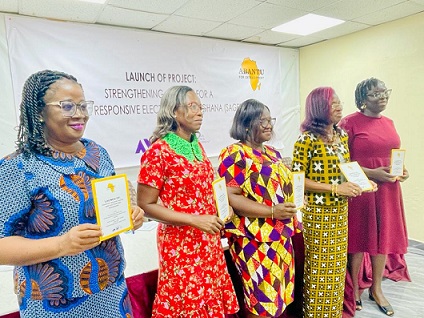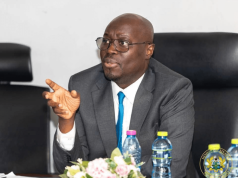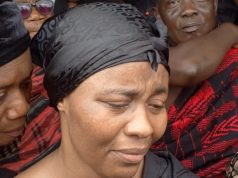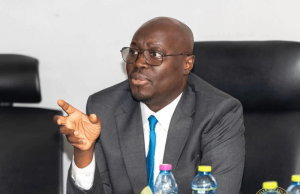ABANTU for Development with support from African Women’s Development (AWDF) has launched a project dubbed: “Strengthening Activism for a Gender –Responsive Elections 2024 in Ghana(SAGES).”
This project is aimed at increasing the effectiveness of Citizens’ actions for inclusive, credible, and peaceful General Elections in 2024.
The specific focus is on supporting joined-up international citizens’ initiatives at all levels of governance to secure the best gender equality outcomes for women and other marginalized groups.
The Executive Director of Abantu for Development Dr Rose Mensah-Kutin, addressing participants at the launch, hinted that the project also seeks to ensure that a higher level of national attention is directed towards addressing the perennial low representation of women and other marginalized groups in policy-making spaces through legislative remedies this year’s elections and beyond.
It obvious discrimination, exclusion, and structural challenges within political institutions and society as a whole make it difficult for women and other marginalized groups to exercise their rights, voice their concerns, and add their perspectives on issues that impact directly their lives.
Stressing that women’s persistent low inclusion from formal politics, in particular, raises a number of specific concerns regarding the achievement of effective democratic transformation, in practice and reality.
Inequality and exclusion undermine the concept of true democratic ideals, which, by its nature, assumes that the right to vote and to be voted for should be equally applied to all citizens and that the tracks for race are made equal for both women and men.
According to her, the absence of a critical mass of women from political decision-making hurts the entire process of democratization.
In addition, lack of inclusive representation creates a gender deficit and lack of accountability in democratic institutions, including decision–making platforms such as parliament and district assemblies.
Explaining that the 2024 Presidential and Parliamentary elections offer another opportunity to deepen efforts to promote gender sensitivity in the electoral processes as well as enhance the knowledge and skills of aspirants and other stakeholders.
The project focuses on empowering marginalized groups, facing numerous structural and systemic limitations specifically women and PWDs to effectively participate, campaign, vote, and help secure wins for those women standing in the 2024 Election.
This is to ensure that the state and political parties direct their attention to taking concrete initiatives to address the demands contained in the historic Women’s Manifesto for Ghana document (2004, 2016).
In addition, it strengthened the women’s movement to undertake vigorous political parties to contest and win their seats.
While women continue to face daunting challenges, nevertheless, in recent times individual women have made enviable strides with great acclamation by holding very high–profile positions to the benefit of society.
However, there seems to be a backlash. The rationale of the project therefore is to increase women’s civic engagement and voice in promoting the institutionalization of democratic ideals in Elections 2024 and beyond.
In the context of Ghana, critical gaps and challenges gaps and remain including the need to ensure women’s equal participation and leadership at decision–making levels.
It also seeks to advocate and work vigorously toward gender parity as part of promoting peace, democratic governance, and sustainable development. Promoting equality can give rise to democratic actions that can passively affect the stimulation of sustainable development.
Finally, the project will work towards increasing women’s active participation in Election 2024 and beyond which ABANTU believes can lead to a qualitative difference in the way the country is governed especially in terms of inclusiveness, gender responsiveness, and equitable distribution of national resources.
Addressing the role of Women’s Activism in the 2024 Ghanaian Election for Development, Hillary Gbedemah, a Member of the Commission on the Elimination of all Forms of Discrimination against Women (CEDAW), urged women and women’s rights activists to reignite their activism spirit. She encouraged them to explore strategies tailored to their advocacy goals.
Madam Faustina Acheampong, representing the Director of the Department of Gender at the Ministry of Gender, Children, and Social Protection, emphasized the necessity for the 2024 elections to be gender-responsive.
Stressing the significance of integrating women’s issues into the country’s development agenda, she underscored the importance of increasing women’s participation at all levels of governance and decision-making in Ghana.
Acheampong also informed attendees that the Affirmative Action Bill is presently under consideration in Parliament.
Beatrice Boakye-Yiadom, the Grant Manager at AWDF, expressed concern over the lack of women’s representation in decision-making processes within the country.
Stressing the importance of robust decisions to achieve parity, she highlighted the absence of women in Ghana’s decision-making spheres.
Boakye-Yiadom emphasized the crucial role that both political parties and the electorate could play in addressing this issue and ensuring greater gender equality.
She emphasized the need for comprehensive representation across all levels and called for advocates to champion women’s participation in decision-making.
Source: Isaac Kofi Dzokpo/newsghana.com.gh


















